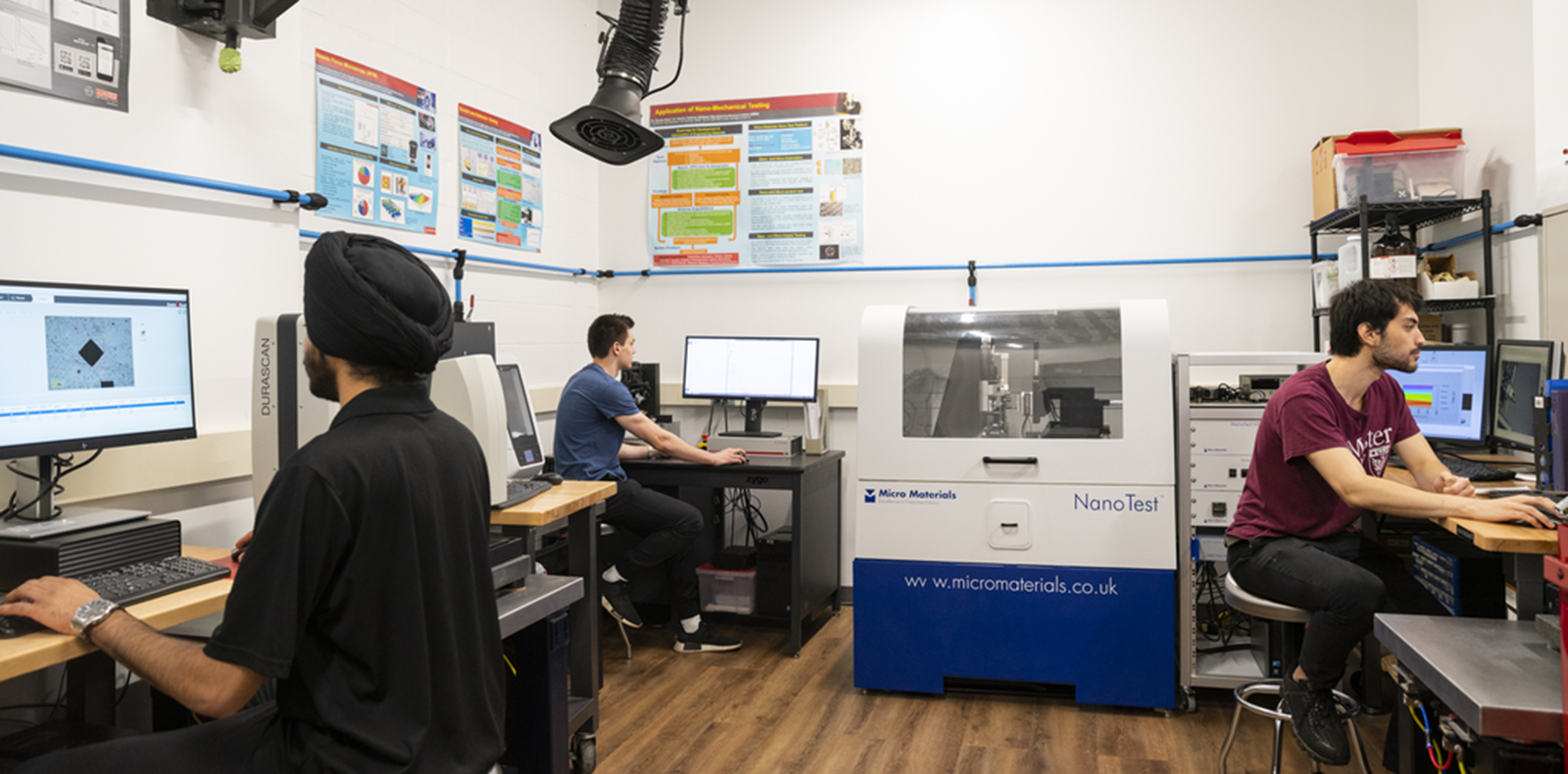
The McMaster Manufacturing Research Institute consists of seven research labs. Each lab specializes in a unique branch of manufacturing.
The MSL studies advanced machine tools and metal cutting. Research projects are strongly linked to industrial R&D of interest to manufacturing industries involved in machining. A major focus of the MSL is increasing efficiency and lifecycle of machine tools.
The MFL is engaged in scientific and applied research on many aspects of sheet metal forming to further our understanding of material and process factors that allow or inhibit sheet materials to be formed into manufactured components.
The CAPPA-D is involved in research, education and technology transfer in polymer processing and rheology. Projects involve formulation, conversion, and characterization of plastics, mathematical modeling of single and twin screw extrusion, co-extrusion, injection moulding, thermoforming, rotational moulding, film blowing, reactive extrusion, mixing, and coating.
The Thermal Processing Laboratory has the expertise and facilities to investigate approaches to thermal processing and offer R&D facilities and technology to the thermal processing industry. The lab is committed to developing and investigating the best solutions for Canadian industry, and assist industrial partners to solve immediate problems and help develop long-term R&D strategies.
There’s a common saying “use the right tools for the job.” Do you ever hear use the right materials? Whenever we’re developing new products or performing failure analysis we need to understand the suitability of a chosen material and assess how it behaves under various conditions.
MPAL specializes in assessing these properties and behaviours by working very closely with industry and academia to select application-specific standard solutions to assessing materials. We also develop brand-new testing methods where established standards fall short of our partner’s needs.
Our current work is focused on manufacturing and testing of advanced materials and devices using electrochemical techniques. We have developed a State-Of-The-Art electrochemical and nanomaterials processing facility using funding from CFI/OIT grant “Electrochemical Science and Engineering Center” and other grants. Our projects are focused on electrodeposition of metals, alloys, polymers, quantum dots, oxides, hydroxides, carbon nanotubes, graphene, semiconductors, composites and other functional materials, manufacturing and testing of electrochemical energy storage and generation devices and corrosion studies.





